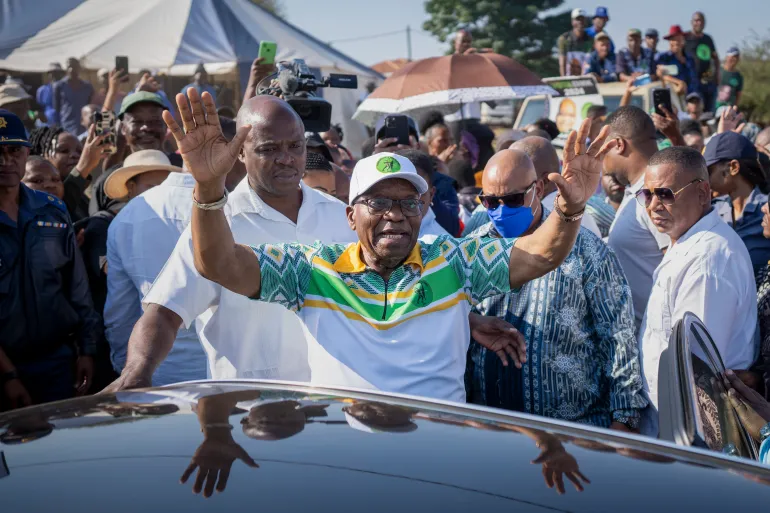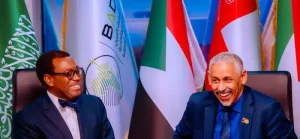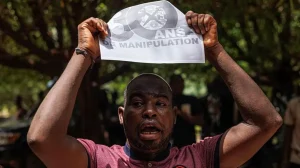
South Africa’s ruling African National Congress (ANC) is on the verge of losing its three-decade-old absolute majority, necessitating the formation of alliances to stay in power. With over 98 percent of votes from Wednesday’s election counted, the ANC, led by President Cyril Ramaphosa, garnered only 40.15 percent support, a significant decline from the 57.5 percent it achieved in 2019.
This development marks a historic shift as the ANC has maintained an absolute majority since 1994, when Nelson Mandela led the nation out of apartheid into democracy. “We have been talking with everybody even before the election,” said ANC’s deputy secretary-general, Nomvula Mokonyane. “Anything must be based on principles and not an act of desperation.”
The Independent Electoral Commission (IEC) website faced downtime on Friday as the country continued to validate votes. According to IEC data, the centre-right Democratic Alliance (DA) held second place with 21.71 percent, a slight increase from its 20.77 percent in 2019. Former President Jacob Zuma’s newly founded uMkhonto weSizwe (MK) surprisingly secured third place with 12.6 percent, followed by the radical leftist Economic Freedom Fighters (EFF) at 9.4 percent.
The final results are expected on Sunday, but with the ANC’s majority in doubt, attention has shifted to potential coalitions. President Ramaphosa must decide whether to seek allies on the right or left. Mandela’s grandson, Mandla Mandela, an outgoing ANC lawmaker, noted that partnering with the DA, led by John Steenhuisen, whose policies conflict with ANC traditions, would be challenging. “The DA holds different ideals, making it difficult to partner with,” he said.
More likely partners could be former ANC figures like Julius Malema’s EFF or Zuma’s MK, despite internal resistance within the ANC. Analyst Susan Booysen described the EFF as “too erratic” and “unpredictable” and highlighted the deep rift between Ramaphosa and Zuma. MK spokesman Nhlamulo Ndhlela echoed this sentiment, stating, “We will engage with the ANC but not the ANC of Cyril Ramaphosa.”
Despite these challenges, Mokonyane dismissed the notion of Ramaphosa’s leadership being at risk. “In the ANC, we don’t work that way. It’s not a presidential election. It was an election that the ANC went in as a party, and we are happy with it,” she asserted.
The ANC has retained significant voter loyalty for its role in ending apartheid and its progressive policies aimed at reducing poverty among black families. However, decades of rule have seen the party embroiled in corruption scandals, economic stagnation, and rising crime and unemployment rates.








